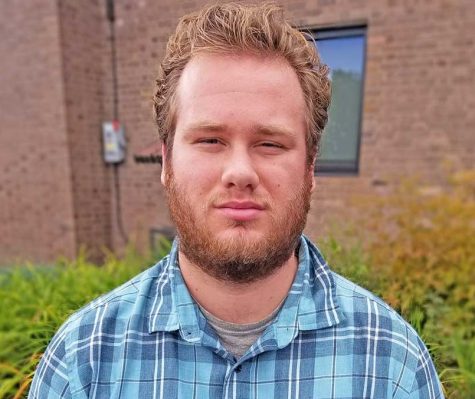New campus program to focus on mental health
Amanda Rosablo
The JED Campus program has arrived at NVU-Johnson with a focus on supporting student mental health.
According to their website, JED Campus is a signature program of the JED Foundation, designed to guide institutions through a collaborative process of comprehensive systems, programs and policy development with customized support to build upon existing student mental health, substance use and suicide prevention efforts. They work with different colleges and universities from across the nation during a four-year period that not only assesses and enhances the work already being done on campus, but helps to create positive, systematic change in the campus community.
JED Campus is a program under the umbrella of the JED Foundation, which was created when founders of the program Donna and Phil Satow lost their son Jed to suicide in 1998. Since then, they have worked to understand suicide and ways to prevent it. Currently, more than 3,000 high schools, colleges and universities have strengthened their safety nets for students by using at least one resource from JED.
More specifically towards JED Campus, more than 270 colleges represent nearly 3 million students participating in the program as they work with JED to improve their mental health, substance misuse and suicide prevention programming.
Associate Dean of Students Michele Whitmore and Director of the Wellness Center Kate McCarthy had known about JED Campus and its work. They decided that they wanted to get more involved with JED and wrote a mini-grant so that the Johnson campus could be considered for funding, which was accepted last spring. This grant will cover the four years that JED will be partnered with NVU-Johnson.
McCarthy mentioned that Johnson would be a great place to work with the JED Campus program based on how members of the campus community care about the well-being of students.
“I thought JED would be a great partnership with us because they can really help us provide really high-quality training around campus, so that our whole campus feels really well equipped to support students,” she said. “I felt like Johnson was really ready to adapt to this approach and it just made a lot of sense to have a little bit of support in doing what we’re already doing, and finding ways to do it even better.”
Starting in the fall of 2019 was when the partnership started, when the JED representatives did a majority of their assessments of the campus. Whitmore and McCarthy administered surveys to students across campus that asked them to highlight different things that the campus does well and not well when it comes to mental health. The JED team then came to campus last fall to do an assessment for the campus and met with administrators and students alike to discuss the state of the campus.
Starting this semester, with help from JED Campus, NVU-Johnson is planning to focus on helping students develop life skills, promoting social connectedness, identifying students at risk, increasing help seeking behavior, and providing quality mental health services. The campus is also planning on creating a student support network, which is a student-centered training program intended to improve the network of peer support on campus. This training will also help with faculty, as it will allow them to identify students in distress and how to refer them to the campus’ wellness center.
One of the students on campus that is involved with this program is sophomore Amanda Rosalbo. She first got involved when she was nominated to talk to the JED representatives during their visit last fall. She is now on the JED team as one of the two student representatives that meet with several faculty and staff from each department, as well as one of the twelve students who are being trained for the student support network.
Rosalbo mentioned that she has noticed mental health being an issue at Johnson, and despite all the great things that the Wellness Center does, they still can be limited at times on what they can do. With JED being on campus, it can help the Wellness Center be better effective at what they do best.
“There’s only so many counselors and there’s only so much money that they have,” she said. A lot of students who come here need assistance with medical problems. We also live in the cloudiest county in Vermont and we have long winters. With JED coming in, I think we really did need it. We’re really looking into ways to improve our mental health care, which is great.”
She noted that the student support network will be key in this, as other students can be the first people that students with issues come to.
“Students know what other students need because sometimes they don’t feel comfortable enough to go to staff and faculty members about problems,” she said. “It’s a lot of pressure, and sometimes it’s just easier to vent to your friends, which is part of the reason why the student support network is going to be good, because [they will be able to go to] someone who’s trained to help you.”
Even though Johnson is just scratching the surface with JED Campus, Whitmore believes that a lot of positives will be created from this partnership.
“We’re really excited to see where this partnership brings us, and really excited to be able to provide additional layers of support for our students because they are why we’re here,” she said. “If we aren’t able to provide the best resources for students to be successful in and out of the classroom, then we need to work hard and make sure that we can, so this will get us to where we need to be.”









